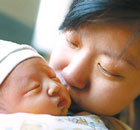Asia-Pacific
Obama sending envoy to DPRK
(Agencies)
Updated: 2009-12-08 14:32
SEOUL, South Korea: After a year of tensions, President Barack Obama is sending a veteran diplomat to the Democratic People's Republic of Korea (DPRK) on Tuesday for the highest-profile talks between Pyongyang and Washington since he took office pledging to reach out to America's adversaries.
A key question is whether Stephen Bosworth can extract a firm commitment from Pyongyang to rejoin nuclear disarmament talks -- whether the DPRK is serious, this time, about peace on the peninsula.
Bosworth is scheduled to fly from a US military base near Seoul to the DPRK's capital Tuesday to see if the DPRK will return to the international disarmament talks that it abandoned earlier this year.
Neither side has said which DPRK's officials Bosworth will meet in Pyongyang during his three-day trip, though he is widely expected to sit down with Kang Sok Ju, the first vice foreign minister, who is considered Kim Jong Il's chief foreign policy strategist.
"The main question is whether Bosworth will meet with Chairman Kim Jong Il," said Kim Yong-hyun, a professor of DPRK's studies at Seoul's Dongguk University. "Such a meeting would demonstrate that both the US and DPRK intend to resolve the nuclear issue."
US Secretary of State Hillary Clinton told reporters Monday that she hoped Bosworth would be successful in persuading the DPRK to return to the nuclear talks and that the North would work for "a new set of relationships with us and with our partners."
This week's talks -- the first direct US-DPRK talks since Obama took office in January -- come after a year of threatening rhetoric and rising tensions on the Korean peninsula.
The two Koreas remain in a state of war, their border guarded by hundreds of thousands of troops, because their three-year conflict ended in a truce, not a peace treaty, in 1953.
While South Korea strives to become a global player and has the world's 15th largest economy, the DPRK has retreated into isolation, with dwindling sources of aid in the post-Soviet era and few trading partners.
Pyongyang says it needs nuclear bombs to counter the strong US military presence in South Korea.
Fifteen years ago, Kang, the chief strategist, himself negotiated an agreement with Washington in 1994 to freeze Pyongyang's nuclear facilities in return for two light-water reactors safer for producing electricity.
That pact fell apart in 2002 after then-Assistant US Secretary of State James Kelly said the DPRK admitted to having a secret uranium enrichment program.
The DPRK denied the charge. Then, it withdrew from the Nuclear Non-Proliferation Treaty and restarted its nuclear facilities, touching off an atomic crisis that led to the creation of broader, six-nation disarmament talks.
The six-nation talks -- hosted by China and involving both Koreas, Japan, Russia and the US -- yielded a 2005 deal calling on DPRK to abandon its nuclear program in exchange for aid and the other security guarantees.
Months later, however, DPRK launched a long-range missile and conducted its first nuclear test.
A new pact in 2007 promised 1 million tons of energy aid and concessions in exchange for the step-by-step disablement of the North's nuclear reactor.
That process came to a halt in mid-2008 amid squabbling with Washington. Six-party talks in December 2008 yielded no progress.
DPRK followed up with threatening language directed at the US and South Korea, whose president pledged to withhold aid until Pyongyang followed through on its nuclear commitments.
An April rocket launch -- seen by many as a cover for a long-range missile test -- earned the country UN Security Council censure. In anger, DPRK walked away from the disarmament talks, test-fired a series of missiles and conducted a second nuclear test.
The plight of two American journalists sentenced to hard labor after being arrested at the Chinese-DPRK's border may have provided an opening for detente. During a surprise humanitarian mission in August to take the Americans home, former US President Bill Clinton met for three hours with a beaming Kim Jong Il.
This week's carefully arranged talks won't break down, but they may not yield immediate results, analysts said.
DPRK has no choice but to rejoin the disarmament process since Washington has made it a condition of the bilateral contact, said Koh Yu-hwan of Seoul's Dongguk University. But he said DPRK likely will push for a US commitment on a peace treaty.
The two sides must put an end to the past enmity, a pro-Pyongyang newspaper said last weekend.
"To guarantee a peace on the peninsula, DPRK and the US -- wartime rivals and the main players in the nuclear issue -- should first take a procedure of ending hostile relations," it said.
Analyst Paik Hak-soon of the private Sejong Institute think tank said it was too early to expect a major breakthrough.
"It'll be a preparatory step ahead of full-fledged negotiations. They'll disclose their positions and listen to each other, find and understand what their common interests are and what differences they have," he said.
Bosworth, who arrived in Seoul on Sunday to confer with South Korean officials, said his objective is to persuade Pyongyang to return to the disarmament talks. Bosworth was accompanied to the North by Sung Kim, US special envoy for the DPRK's nuclear talks, and by nuclear and Asia specialists from the Defense Department and the White House.
Bosworth is to return to Seoul on Thursday before continuing onto Beijing, Tokyo and Moscow to update the six-party partners before returning to Washington.











